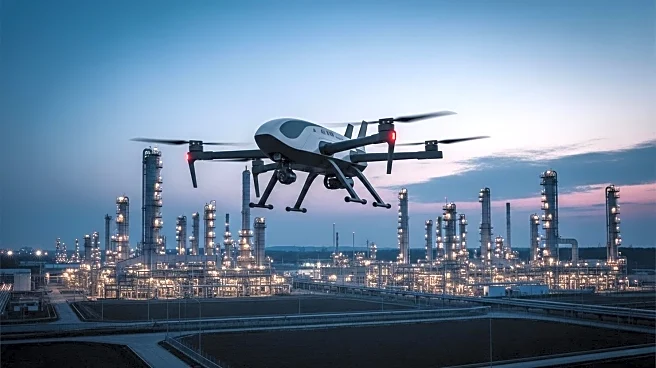What's Happening?
Ukrainian drones have targeted one of Russia's largest oil refineries, the Kirishi facility, causing a fire and highlighting ongoing tensions between the two nations. The refinery, operated by Surgutneftegas, is a significant contributor to Russia's oil output. The attack is part of a series of Ukrainian strikes on Russian oil infrastructure, which Ukraine claims supports Russia's war efforts. The incident has exacerbated gasoline shortages in Russia, leading to rationing and export bans. The strike underscores the strategic use of drones in the conflict, with implications for regional stability.
Why It's Important?
The drone strike on the Kirishi refinery has significant implications for Russia's energy sector and its economy. As one of the world's largest oil exporters, disruptions to Russian oil production can impact global energy markets and prices. The attack also highlights the vulnerability of critical infrastructure in conflict zones, raising concerns about the potential for escalation and spillover effects in neighboring regions. The use of drones as a tactical weapon in warfare continues to evolve, influencing military strategies and geopolitical dynamics.
What's Next?
Russia may respond to the attack with increased security measures at key infrastructure sites and potentially retaliate against Ukrainian targets. The ongoing conflict could lead to further disruptions in energy supplies, affecting both domestic and international markets. Stakeholders, including governments and energy companies, will need to monitor developments closely and prepare for potential impacts on supply chains and pricing. Diplomatic efforts may be necessary to address the broader implications of the conflict and seek resolutions.












